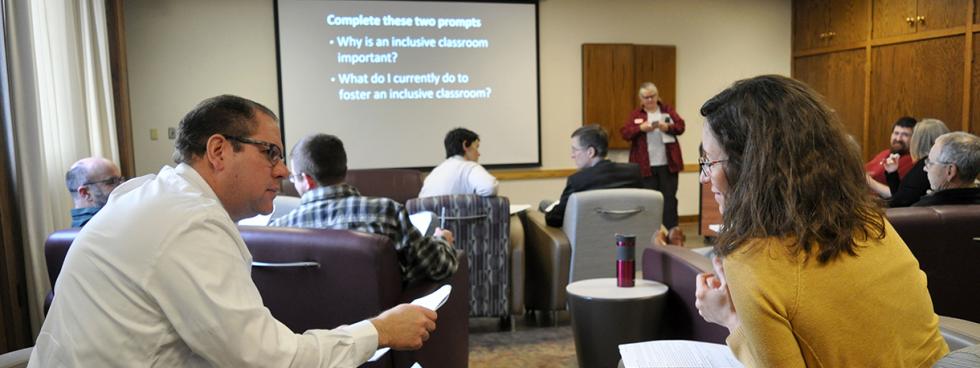
Establishing an Inclusive Classroom
Look up the meaning of a microaggression and you get this for a definition.
“A statement, action or incident regarded as an instance of indirect, subtle or unintentional discrimination against members of a marginalized group such as a racial or ethnic minority.”
Many times, the individual uttering the microaggression doesn’t realize they have done so.
An inclusive classroom training program provided by Iowa State’s Center for Excellence in Learning and Teaching (CELT) is working, among other things toward eliminating microaggressions. All College of Veterinary Medicine faculty members are currently participating in the training sessions through their academic departments.
This program is in addition to training related to diversity and inclusion conducted by the college’s Office of Curricular Assessment and Teaching Support (OCATS). The office provides a variety of materials on best teaching practices including an annual seminar series.
“The trainings being conducted by CELT and OCATS advances our goal to create a great place to learn,” said Dr. Dan Grooms, the Dr. Stephen G. Juelsgaard Dean of Veterinary Medicine.
The offerings by CELT and OCATS are designed not only to inform but to spark conversations. Those conversations seem more often than not to go back to uncertainty and change.
“Change is always hard,” said Dr. Courtney Vengrin, director of curricular assessment and teaching support. “But the sign of an excellent educator is a willingness to be a life-long learner.”
Both programs look at diversity and inclusion and offer inclusive teaching strategies including course design, teaching strategies and evaluation practices. Course-specific improvements are identified to allow faculty to foster inclusive excellence in their classroom.
It’s not always easy to do that however.
“The first step is awareness,” Vengrin said, “and being aware of what changes need to be made and once you are aware of them, finding resources to help you through that change.
“However it will take some time for people to get used to these changes.”
Some of the changes include using non-gender specific language and pronouns that an individual wishes to be addressed as. But even that is difficult.
Individuals may be hesitant to engage and ask personal questions of a colleague or student.
“Naturally we’re all afraid of doing or saying the wrong thing,” Vengrin said. “One of my favorite quotes comes from the author Lee Airton who says ‘don’t aim for no mistakes, aim for better mistakes.’
“We all slip up,” she continued. “I’ve slipped up from time to time, but we should aim for making improvements and being aware of the consequences of how our words can be heard by others.”
March 2020
